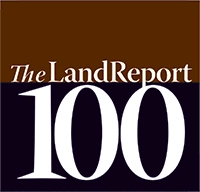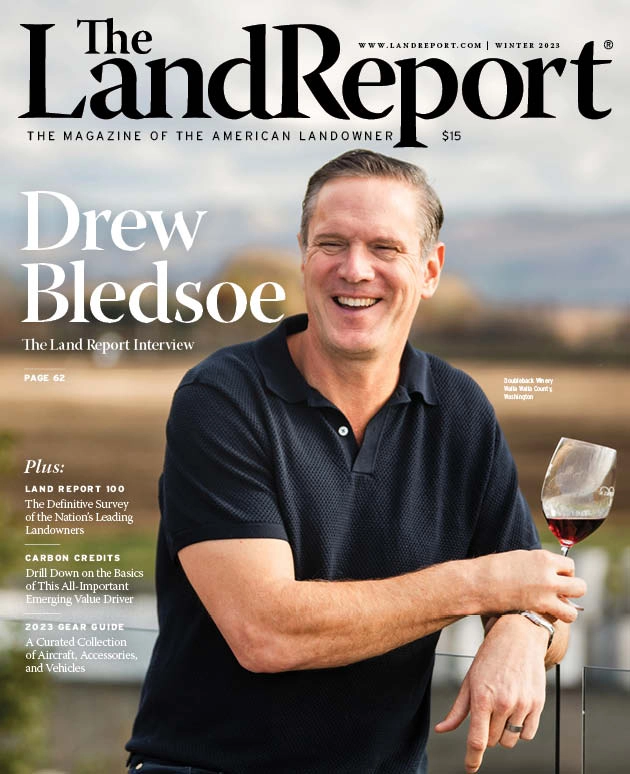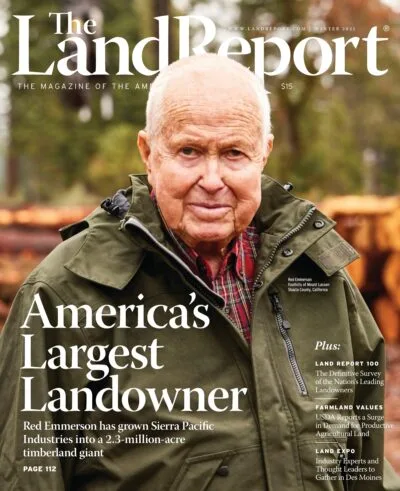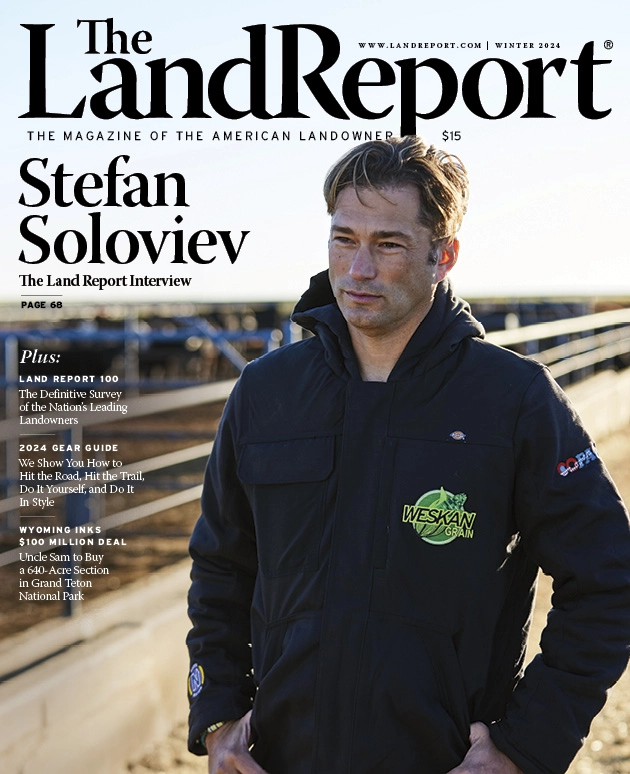Holland M. Ware Charitable Foundation
Revenue produced from timberland owned by the Holland M. Ware Charitable Foundation (HMWCF) is going to the dogs. And to cancer research, women’s shelters, scholarship funding, and many other programs.
“Any of the products that come off the foundation’s properties — whether that’s timber, pine straw, carbon, granite, construction-grade sand — are used to fund the foundation,” says Brenda Thueson, executive director and trustee of the HMWCF.
Rank:
#78
Total Acres:
200,000

Holland M. Ware Charitable Foundation

Itis not often that a land purchase involves working with a Traditional Knowledge Keeper of a Native Ameri-can Nation. But that was the situation for officials with Westervelt Ecological Services (WES) — an environmental restoration and conservation arm of The Westervelt Company — during the recent purchase of 109 acres situated along the Missouri River in Northern Nebraska.
Rank:
#10
Total Acres:
911,215
“The reach of the foundation is varied, and it uses the resources that come from the land in order to give back as Mr. Ware (1937–2019) always wanted us to do.” One of the foundation’s first charitable projects was the Puppy Pipeline, which started in 2006. Georgia native Michael Dougherty approached Ware about helping fund an animal-rescue program in the state that would take abused dogs from rural shelters and find homes for them. “Rural shelters were overflowing, and euthanasia rates were higher than they had ever been,” Thueson says.
“These animals come from situations of abuse and neglect. Some are missing a leg or an eye. Some are terrified because of the horrible situations they’ve been in. “But when they have the opportunity to be loved, it just changes the faces of those little animals. Since we started that program, more than 43,000 of them have been saved. We’ve gone from a single transport van to a fleet, and we now also have a Kitty Pipeline as well.”
The foundation also has a partnership with the Auburn University College of Veterinary Medicine that enables students to receive hands-on training by working with shelters to spay and neuter animals, as well as assist on surgeries of injured animals. In addition, the HMWCF is also providing internships for students at rural shelters. People benefit from the foundation’s generosity as well. In November, the HMWCF donated $500,000 to St. Luke’s Health Foundation in Boise, Idaho, to fund a CAR T-Cell cancer-therapy program.
“It was made possible for us only because of this philanthropy,” St. Luke’s Health Foundation Vice President Travis Bradburn said in a news release. “It will have an impact on people with cancer in all our St. Luke’s communities.”
Thueson says providing funding for such programs was important to Ware. That is why the HMWCF continues to work with charitable organizations and projects throughout the country.
“The land has been very generous to the foundation in so many ways. In turn, we feel that generosity needs to be returned to the people we serve,” Thueson says. “The land has given us so much, so we need to be able to give back.”
– Cary Estes
“The reach of the foundation is varied, and it uses the resources that come from the land in order to give back as Mr. Ware (1937–2019) always wanted us to do.” One of the foundation’s first charitable projects was the Puppy Pipeline, which started in 2006. Georgia native Michael Dougherty approached Ware about helping fund an animal-rescue program in the state that would take abused dogs from rural shelters and find homes for them. “Rural shelters were overflowing, and euthanasia rates were higher than they had ever been,” Thueson says.
“These animals come from situations of abuse and neglect. Some are missing a leg or an eye. Some are terrified because of the horrible situations they’ve been in. “But when they have the opportunity to be loved, it just changes the faces of those little animals. Since we started that program, more than 43,000 of them have been saved. We’ve gone from a single transport van to a fleet, and we now also have a Kitty Pipeline as well.”
The foundation also has a partnership with the Auburn University College of Veterinary Medicine that enables students to receive hands-on training by working with shelters to spay and neuter animals, as well as assist on surgeries of injured animals. In addition, the HMWCF is also providing internships for students at rural shelters. People benefit from the foundation’s generosity as well. In November, the HMWCF donated $500,000 to St. Luke’s Health Foundation in Boise, Idaho, to fund a CAR T-Cell cancer-therapy program.
“It was made possible for us only because of this philanthropy,” St. Luke’s Health Foundation Vice President Travis Bradburn said in a news release. “It will have an impact on people with cancer in all our St. Luke’s communities.”
Thueson says providing funding for such programs was important to Ware. That is why the HMWCF continues to work with charitable organizations and projects throughout the country.
“The land has been very generous to the foundation in so many ways. In turn, we feel that generosity needs to be returned to the people we serve,” Thueson says. “The land has given us so much, so we need to be able to give back.”
– Cary Estes
The Magazine Of The American Landowner
Please sign me up to receive breaking news and updates from The Land Report:






